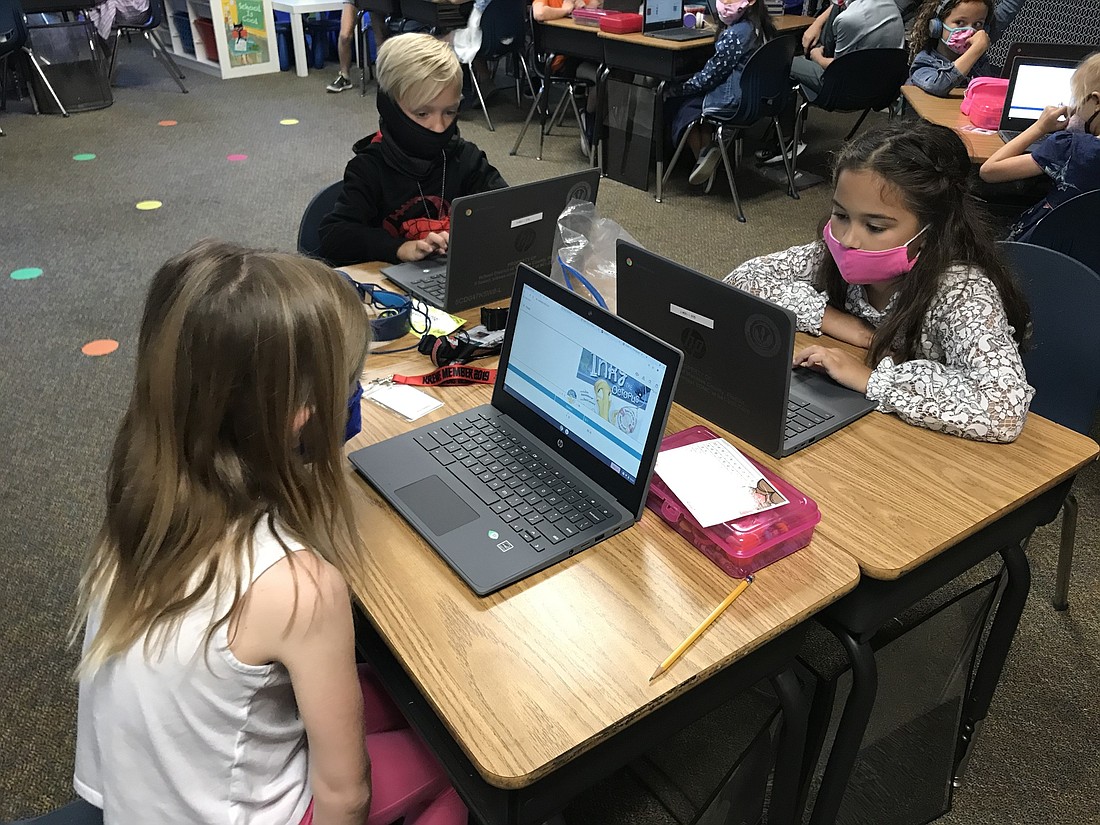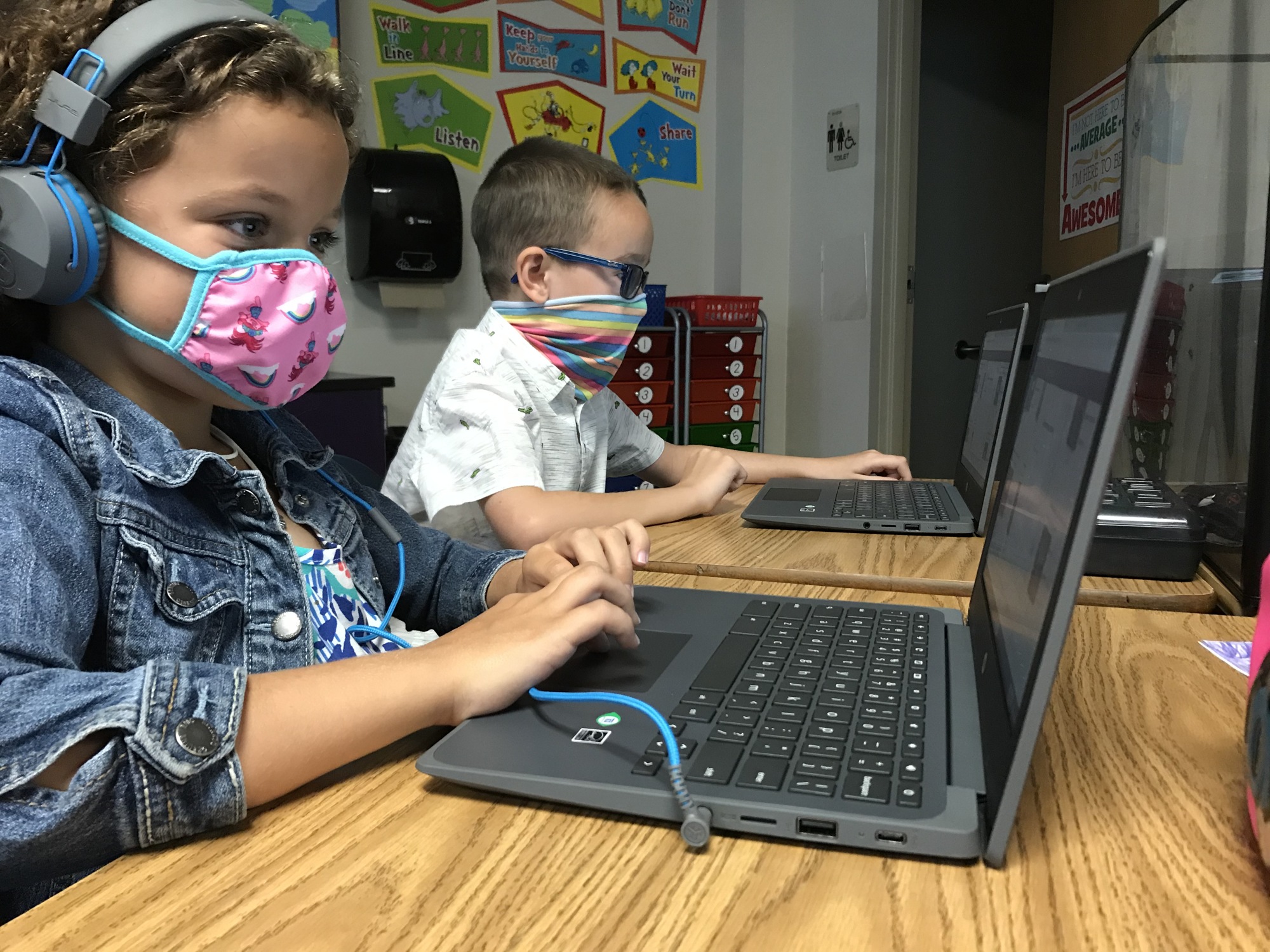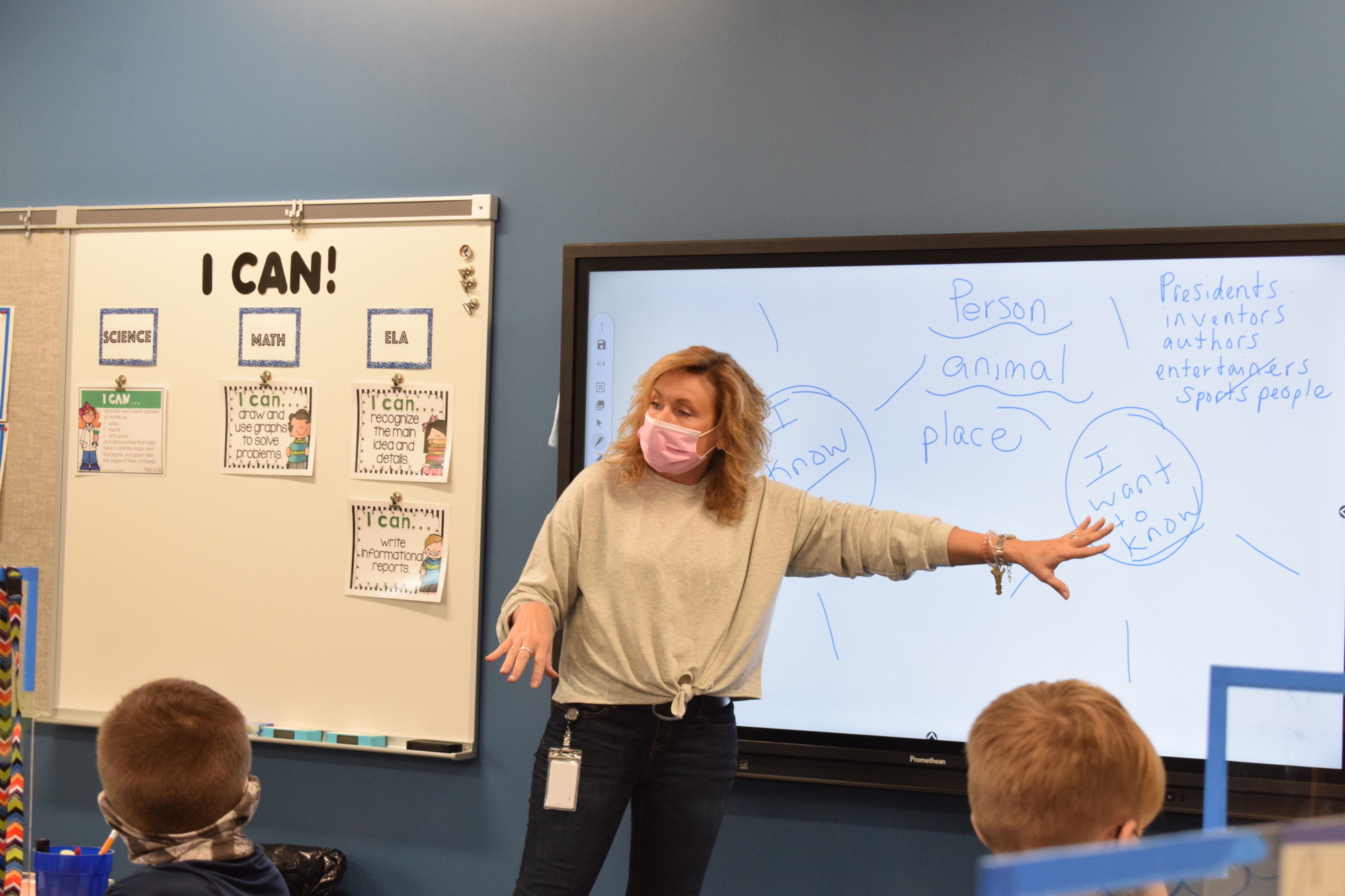- April 23, 2025
-
-
Loading

Loading

After the COVID-19 pandemic began, Lindsey McKinnon, an art teacher at R. Dan Nolan Middle School, was used to seeing her students’ faces from the eyes up because of the School District of Manatee County’s mask policy.
When McKinnon’s students started their self portrait projects in February, she finally saw her students’ smiles when she took photos of each student.
“It was the first time all year I’d seen the bottom half of the majority of my students’ faces,” McKinnon said. “Getting to see what they looked like for the first time, it never matched up to, I guess, what my imagination had decided they looked like. It was kind of thrilling.”
Coming into the 2020-21 school year, McKinnon, like many teachers, had some fears and anxiety over returning to campus.
The School District of Manatee County had to navigate its way through constant changes with the pandemic and uncertainty on how reopening schools could impact employees and students.
The district spent months developing a plan that followed Gov. Ron DeSantis’ mandate that schools reopen with full-time brick and mortar while also providing options for parents who didn’t want to send their student back to school yet.
The district implemented several health and safety protocols, some of which weren’t popular, such as the face mask policy. Schools completely changed in a matter of weeks to include hand sanitizing stations, one-way hallways, socially distant desks and tables, desk shields, and masks.
A year after schools closed March 13, 2020, due to COVID-19, teachers, parents and district leaders said the measures taken to try to protect students and employees while reopening schools and providing a quality education have worked better than expected.
“The first day we were all super apprehensive, but then the kids came in and sat in their seats, and they were so well behaved,” McKinnon said. “You could tell they were just happy to be out of their own houses. There was a lot of gratitude. I felt all of my worries went away after a week or two of being back in school. I was just grateful to be there with the kids.”
A challenge the district has faced is trying to fill teacher vacancies. In November 2020, the district had 76 unfilled teaching positions, which was a significant increase over the same time in 2019, when there were only 22 unfilled positions. The district currently has 69 unfilled teaching positions.
Chapman said the district will start its hiring season for teachers in April to prepare for next school year.
In the meantime, parents said the district and schools have done all they can to try to protect students and limit potential exposure.
Julie Fitzpatrick, a mother of two B.D. Gullett Elementary School second graders, said the administrators at the school “run a tight ship,” and she’s pleased with how teachers and staff members have continued to educate her children while having to abide by all the health and safety protocols.
Fitzpatrick’s second graders started as e-learners in August but transitioned to brick and mortar in the second quarter. She said Schoology, the online learning platform the district uses, was easier to navigate and worked more efficiently than when the district transitioned to e-learning a year ago.
Angie Reeves, a parent of a second grader and a fifth grader at Freedom Elementary School, said the school leaders have worked with her and her children to ensure they would be comfortable in class and weren’t falling behind.
Reeves’ son had difficulty adjusting to wearing a mask for several hours a day at school, so the family worked with the principal, school counselor and PE coaches to come up with a plan to have her son switch classes and developed an action plan.
“He made a complete turnaround within a matter of two weeks,” Reeves said. “He’s completely back to normal.”
Reeves noticed her daughter might have fallen behind in instruction as a result of moving to e-learning at the end of last year, and her grades were slipping at the beginning of the year. Reeves said her daughter’s teacher has been working with her daughter before school to offer extra support and instruction.
Genelle Zoratti Yost, the deputy superintendent of instructional services, said the district is seeing an achievement gap more in math than any other subject, and the district is putting strategies in place to close the gap, such as small group instruction and after-school support.
Zoratti Yost said math can be more difficult to teach in a virtual setting.
“When you’re not watching them in a classroom setting, I think we miss some things just by the nature of e-learning,” she said.
Teaching during the pandemic has not been easy, especially if a teacher was responsible for multiple modalities.

“In the 12 years I’ve been teaching, I would call it the most challenging year in education, but I think most of us stepped up,” said John Frank, a career and technical education teacher at Braden River High School. “In my case, I would never leave the ship in a storm. We stuck it out. I think we pulled off a pretty challenging year pretty well.”
As an applied engineering and digital photography teacher, Frank found it difficult to provide students with the tools they needed to complete assignments at home and keep everyone on the same page with instruction.
He was spending at least 70 hours per week making videos, uploading assignments and trying to help his students while they were at home.
“You do what you have to do,” Frank said. “You take this job to make a difference.”
McKinnon found it difficult to build a rapport with her hybrid students, and because those students were only on campus twice per week, they were unable to do as many hands-on projects.

As schools move into the fourth quarter after spring break, teachers and district leaders said there are a few lessons they can take from this unprecedented year and apply to the coming years.
“Life goes on,” McKinnon said. “We will always manage to conquer adversity. We’re going to stand together and get through tough times. There’s always a light at the end of the tunnel, and there’s always a lot of learning we gain from these experiences.”